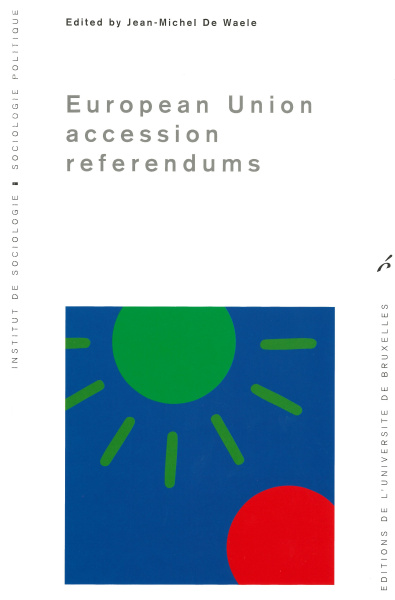European Union accession referendums
First Edition
This book analyzes the Central European Countries' referenda on their accession to the European Union. Read More
The referenda on the EU accession took place in a very short period of time and have the same main issue at stake; this is why a comparison of their results is very feasible. Political scientists of different countries use the same pattern for their analysis, taking into account the themes of the campaigns, their organization, the pro- and anti-European electorates, the stake of Europe in the public discourse, and the issue areas that were mobilized. Can we speak about the same types of arguments for the different countries? Did the different types of relations with Europe have a stake in the results? Is it possible to compare the anti-European electorates? Which were the public positions of the different political parties, trade unions and employers’ organizations? Is it possible to draw a parallel with the situation in the other fifteen member States? Was the position of the parties in a political family identical for the different countries? Can we speak about peculiarities due to the communist past? Is there a domino effect for the different consultations? This book tries to answer the questions outlined above.
A transversal reading of these themes is favored by the chapters’ organization. At a time when Europe gets more and more visible in the national political debates, and when the first political and economic effects of the enlargement are being felt, it is important to better understand the European debate in the new member States, as this is too often ignored or misinterpreted. The reactions after the first European Parliament elections prove this point. This book is a reminder and an analysis of the results of these ballots.
The wave of referenda on the EU accession in eight States allows us to better understand the way in which the social and political actors, but also the citizens of Central Europe, understand the European construction. Moreover, it allows a comparison not only of their attitudes in the framework of the region, but also with elder member States of the European Union.
Specifications
- Publisher
- Éditions de l'Université de Bruxelles
- Edited by
- Jean-Michel De Waele,
- Contributions by
- Krisztina Arató, Ivan Bernik, Jean-Michel De Waele, Vladas Gaidys, Jānis Ikstens, Alar Kilp, Z. Kusa, Irmina Matonyté, Michel Perrotino, Samo Uhan, Tomasz Zarycki,
- Collection
- Political Science | n° 21
- ISSN
- 13786571
- Language
- English
- Publisher Category
- Publishers own classification > Political Science
- BISAC Subject Heading
- POL058000 POLITICAL SCIENCE / World / European
- Onix Audience Codes
- 06 Professional and scholarly
- CLIL (Version 2013-2019)
- 3283 SCIENCES POLITIQUES
- Subject Scheme Identifier Code
- Thema subject category: Elections and referenda
Paperback
- Publication Date
- 24 February 2022
- ISBN-13
- 978-2-8004-1787-5
- Extent
- Total numbered pages : 298
- Code
- 1787
- Dimensions
- 16 x 24 x 2 cm
- Weight
- 580 grams
- ONIX XML
- Version 2.1, Version 3
ePub
- Product Detail
- 1 EPUB
- Publication Date
- 14 April 2022
- ISBN-13
- 978-2-8004-1788-2
- Extent
- Absolute page count : 296
- Code
- 1788
- ONIX XML
- Version 2.1, Version 3
Google Book Preview
Contents
Préface
CHAPITRE I - L'Althusser antihumaniste, ou de la coupure
1. Le problème de la « philosophie de Marx »
2. Du côté de Staline
3. Les thèses de l’antihumanisme
4. Spinoza l’antihumaniste
5. Louis Althusser entre déterminisme et liberté
CHAPITRE II - Althusser de la lecture
1. Le détour par Spinoza
2. Le Traité théologico-politique, une politique du discours
3. Lire Le Capital avec Spinoza
CHAPITRE III - Althusser de la structure
1. Du « marxisme structuraliste » à l’immanentisme spinoziste : un parcours philosophique
2. Déterminisme et coupure
3. Coupure et lecture symptômale
CHAPITRE IV - Althusser, de la conjoncture au retour du sujet
1. Penser la conjoncture
2. Le détour par Machiavel
3. Spinoza Machiavellianus
4. Interpellation et constitution du sujet
5. Est-il simple d’être spinoziste en philosophie ?
CHAPITRE V - Althusser et l’aléatoire
1. Entre la nécessité et l’aléatoire
2. La crise du marxisme
3. Les « manifestes » du matérialisme aléatoire
4. À quoi s’oppose le matérialisme aléatoire ?
5. Une conjoncture sans politique
Conclusions


If Althusser was a Spinozist...: on Juan Domingo Sánchez Estop's Althusser et Spinoza